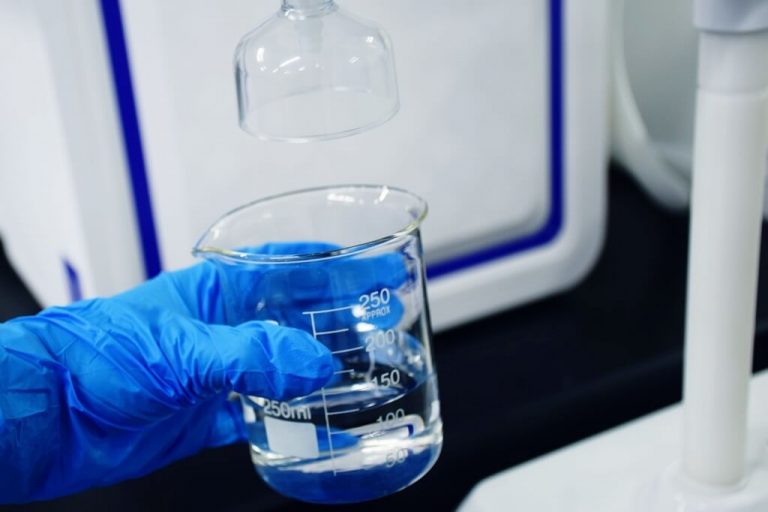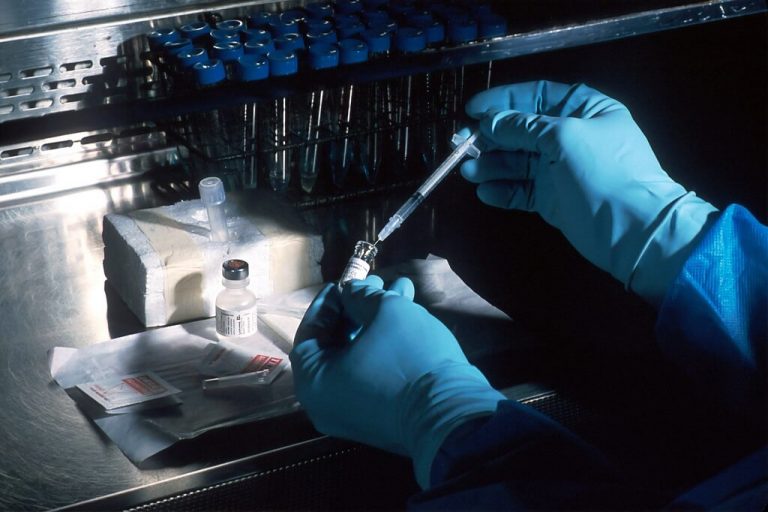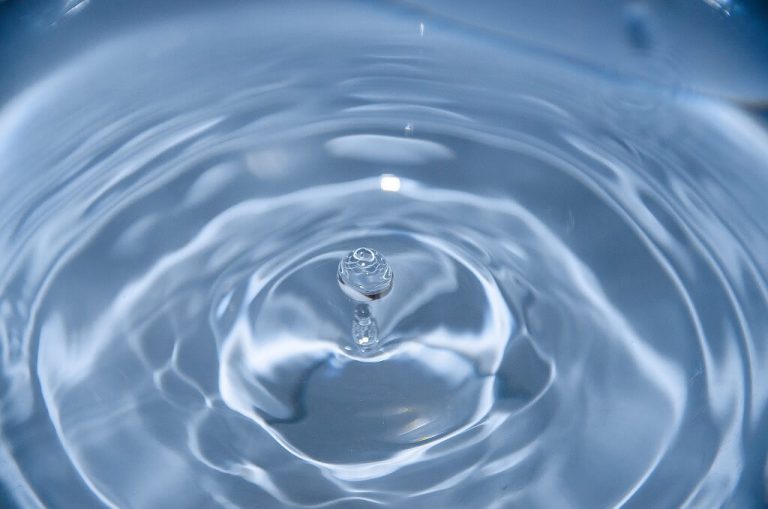It can be extremely disheartening to begin learning about the contaminants commonly present within our polluted water systems. These contaminants pose significant risks to your overall health, the health of loved ones, and even your pets. Although there are a variety of dangerous contaminants, Chromium 6 has recently begun to gain attention on a grand scale. Why is a single contaminant gaining ground? Contaminating at an Alarming Rate Chromium 6 is beginning to contaminate water ways at an alarming rate compared to the contamination rate of other contaminants. When this particular contaminants is consumed over a long period of time, the harmful consequences are more dire than that of others. As such, more time and effort are being put into the research surrounding the occurrence and the impact on overall health. Whether we choose to ignore the facts surrounding this contaminant, or decide to educate ourselves on the applicable health…
During the summer months, swimming pools are being used by everyone from family to friends and therefore it’s crucial the pool is kept clean. Not only will great maintenance and care increase the life of the pool but it’s the hygienically right thing to do. People who go into a pool are bringing along bacteria and other contaminants. You must clean and brush the pool on a regular basis and make sure you add the required chemicals to keep the water clean and safe. If you have a really busy life, consider bringing in a pool cleaning service to take care of it for you. Why It’s Important To Have A Clean Swimming Pool When you go that extra mile to keep your pool in great shape, it adds to your entire outdoor environment and everything will connect and run smoothly. The summer is the time of year for many…
Statistics have shown that people in the United States have one of the safest and most reliable drinking water systems in the world. Millions of people in the country get their water from a public water system. The water we drink comes from either surface water or groundwater source. Surface water gathers water from streams, rivers, reservoirs, and lakes. On the other hand, groundwater is found below the ground and is collected in pores and spaces in rocks or underground aquifers. Groundwater is brought to the surface by drilling wells and pumping. You get your water in your home from surface or groundwater through a local water utility or privately by means of a private well. A private well uses groundwater as the source. If you have a well or other private water system, you are responsible for the water being safe and free of contaminants. Known Problems From Water…
Viruses transmitted by polluted water infect millions of people each year, and the World Health Organization estimates that at least two billion people drink contaminated water. Knowledge of waterborne viruses and other waterborne diseases will become increasingly important as the global population grows, and safe drinking water becomes scarcer. You’ll learn about waterborne viruses, how to determine if your water is contaminated, and how to remove viruses from water and protect your drinking water supply in the sections below. Which Viruses Commonly Spread through Water? Norovirus and rotavirus are the most common viruses spread through water in the United States, which may surprise you. Because these viruses are known to cause food poisoning, you might assume that they are only spread through food. Both water and food can spread them. If your lost fluids and electrolytes aren’t replaced, both of these viruses can cause severe dehydration and even death. These…
It’s been known for some time now, drinking 8 ounces of water is critical for your overall health. Studies have shown staying hydrated will improve your energy level, clarity, productivity, mood, and memory. What if you were told there is something you can drink that will hydrate you even faster and longer than regular drinking water and will improve your blood, bones, and organ health? If you are not sure, please continue to read on. The answer is alkaline water! As you continue to read you will discover the pros and cons regarding the benefits of drinking alkaline water and the many reasons why. Just What Is Alkaline Water? Alkaline water has higher levels of hydrogen than regular drinking water. The pH level is measured by the number of hydrogen ions in the water. High concentrations of hydrogen ions provide a low pH or acidic substance whereas low levels of…
Fluoride is a natural mineral that is released from rocks into the water, the soil, and even the air. All forms of water contain a certain level of fluoride. The level in water is minimal and therefore not able to prevent tooth decay. There are areas such as groundwater and natural springs that actually do have higher levels of fluoride. Public water or community water is treated for the level of fluoride in the water. The treatment can raise the level to recommended standards for preventing tooth decay. How Does Fluoride Get Into Our Water? In 1931, according to H.V. Churchill, Chief Chemist working in an American mining company, said people who drink water with high levels of fluoride will probably not have cavities. This is probably why fluoride became an important element in mouthwash and toothpaste, approximately 10 years later. In 1945, Grand Rapids, Michigan started the fluoridation process…
Knowing how much water you should consume each day can be confusing and difficult to figure out. One reason is caused by the simple fact that all bodies are not the same so consumption will vary. According to the National Academies of Sciences, Engineering, and Medicine women should consume a total of 2.7 liters or 11 cups of fluid while men should consume 3.7 or 16 cups. Keep in mind, not all fluids have to be water. Other beverages and foods should still be nutrient-rich in content. Do You Know The Health Benefits From Drinking Water? Your body is made up of approximately 50 to 70% of your body weight. Above and beyond all else, your body depends on water in order to survive. Every single cell, tissue, and organ in your body requires water to work properly. This Include: Your body removes waste by urinating, perspiring, and with bowel…
Just for the record, drinking water will help you lose weight, just not overnight. Our bodies are made up of 60% water and according to the U.S. Geological Survey, water is responsible for flushing out waste and controlling your body’s temperature. Our bodies rely on water to keep our organs and body cells healthy including our blood. Our kidneys are excellent for managing the amount of water consumed in order to produce more urine as well as removing excess water. What you might not know, your body is sensitive to a lack of water and you might not survive over a week without the proper intake of water. It’s a fact that we need to help our bodies function properly and remain hydrated in order to stay alive. If you have ever followed a reputable diet, you know drinking plenty of water will also help you lose weight. Here are…
As winter prepares to move on, spring is right around the corner. People are coming out of their homes and looking for great adventures that lie ahead. Lockdowns are behind you and the clatter from the press will be left behind when you take off on your splendid vacation. Many people who call themselves RVers, are storing up on supplies, backpacks, gear, and everything else they might need at some point when traveling. In order to make your RV trip better, you should make a list of all necessities and make sure you have everything before leaving home. Prepare Meals & Snacks Ahead Of Time To make your trip more enjoyable, preparing separate meals will help your kids have their favorite meals and totally enjoy the trip. Separate snacks and sandwiches will give everyone their favorite choices. Don’t forget to bring along plenty of filters for your portable container for…
Did you know water is considered a universal solvent? This is simply due to water’s ability to absorb molecules from a variety of substances, and completely dissolve them. The amount of dissolved particles found in specific volumes of water is referred to as TDS, or total dissolved solids level. These total dissolved solids may be organic or inorganic, and it’s vital to understand the TDS level of your own drinking water at home. As a whole, this level represents the quality and status of your current drinking water situation. Let’s explore the ins and outs of total dissolved solids, including the different types, ways to measure, and how to reduce their presence overall. What are TDS Levels? The level of inorganic or organic materials, commonly referred to as total dissolved solids (TDS) may include salts, ions, metals, minerals, and more. TDS levels are a way to measure elements dissolved in…










